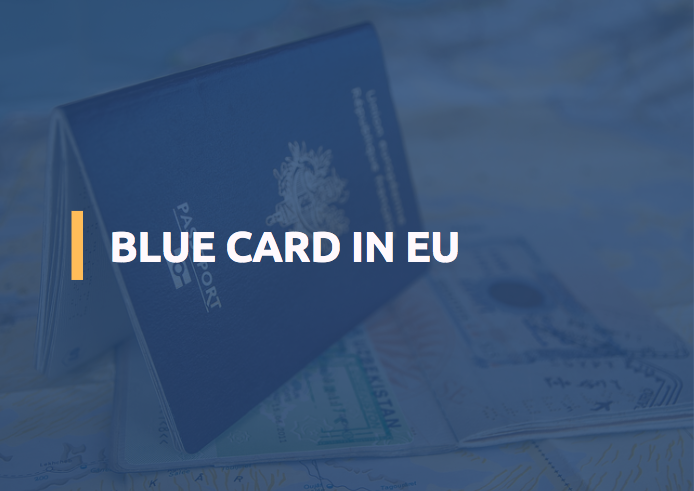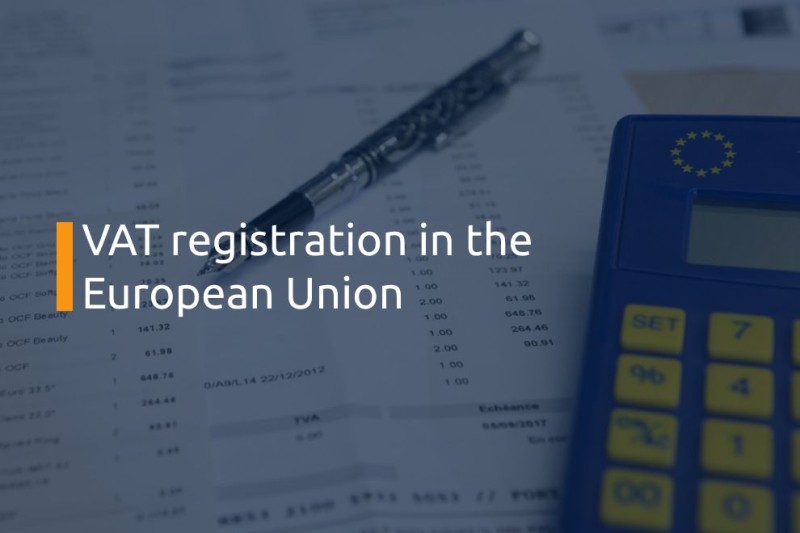Starting a business in Europe
Starting a business in Europe provides an instant gateway to one of the largest business hubs worldwide, featuring state-of-the-art infrastructure, robust legal protections, and a highly skilled workforce. With a $15.6 trillion nominal GDP, the EU ranks as the world’s second-largest economy and most significant trading block. In 2022, nine European countries were included in the World Bank’s top-20 list of “Ease of Doing Business Ranking.” Consequently, Europe continues to be one of the most alluring destinations for international business formation and investment.
Establish your business in Czechia, the heart of Europe, remotely and with ease.
Despite the challenges posed by COVID-19, the European Union is expected to make a significant recovery in the next two years. According to The European Commission’s Autumn 2020 Economic Forecast, the EU economy is projected to shrink by 7.4% in 2020 before rebounding with 4.1% growth in 2021 and 3% growth in 2022. In contrast, the US economy is predicted to contract by 6.5% in 2020 according to the Federal Reserve, with only 3.6% growth expected in 2021, potentially slowing down the recovery and delaying a return to pre-COVID levels until 2022.
While COVID-19 has presented challenges, it has also created opportunities for various industries, including IT, construction, transportation, warehousing, and others. As the vaccine becomes more widely available, now is the time to prepare for launching a new business or expanding in the post-COVID world.
The best countries to start a business in EUROPE
If you are looking to start a business in Europe, there are several countries that offer favorable conditions and a supportive environment. Some of the best countries to consider are Ireland, Denmark, Finland, Switzerland, and Germany. These countries have a strong economy, a skilled workforce, and a business-friendly environment with low taxes and minimal bureaucracy. They also have high levels of innovation, access to funding, and a vibrant startup culture. By choosing the right country to start your business, you can increase your chances of success and tap into the many opportunities that Europe has to offer.
Here are the key points about European countries that are great options for starting a business:
Sweden
Sweden is ranked as the best country in the EU for doing business according to Forbes. Its economy is free-market and competitive with a strong welfare system, making it a great investment opportunity. The construction industry is one of the biggest boosters to the economy, and foreign investment is welcome. Sweden is a great gateway to the Northern European market and has excellent infrastructure. It also provides companies with research opportunities and will be investing €56 billion in infrastructure over the next ten years.
Denmark
Denmark is ranked first in Europe for ease of doing business by the World Bank. Its economic system is similar to Sweden, with a strong welfare program and a market economy. Denmark is also welcoming to foreign capital investment, and its laws make the hiring and firing process easy. Denmark has a diverse and multicultural professional workforce who mostly speak English. It is a hub for biotech, life sciences, and food innovations. Other attractive investment industries include education, media, mass transit, and more. Low-interest rates and stable economic growth invite businesses to grow, expand, and start in Denmark.
Czech Republic
ScaleOffice recommends the Czech Republic as a great location for start-ups, established businesses, and branches of existing companies. As an EU member state, it is centrally located in Europe and has a sophisticated transportation system that makes it a key hub for connections with Western, Eastern, and Central Europe. The Czech Republic also has one of the lowest tax rates in the EU, with a flat tax rate that can be reduced by up to 60% using the lump sum. The cost of renting an office is also very low compared to other parts of the world. With a skilled workforce and many English speakers, Czechia has the lowest unemployment rate in Europe (1.91%), making it an attractive destination for businesses looking to expand. ScaleOffice has a history of helping international businesses enter new markets, and they recommend the Czech Republic as an extremely attractive investment opportunity due to its potential for expansion.
Ireland
According to the World Bank, Ireland was ranked as the best country for doing taxes in 2020. The country offers excellent tax incentives for entrepreneurs, with a low corporate tax rate of 12.5% for business income, which can add up to 37.5% with corporate tax benefits. This serves as a great stimulus for aspiring companies. Additionally, start-ups in Ireland can benefit from a wide range of funding opportunities through Enterprise Ireland, which annually invests in up to 200 new export-focused businesses and has connections with other Irish investors. New companies in Ireland can also gain access to experienced high-tech staff, numerous investors, research opportunities, producers, and suppliers suitable for any business. The country’s main industries include the food and export sectors, life sciences, gaming, IT, and the financial sector. Despite the impact of the COVID-19 pandemic, Ireland saw stable growth until 2019, with a GDP growth rate of 5.6%. However, in 2020, this declined to an estimated -2.3%. In 2021, the Irish economy is expected to recover with 2.9% GDP growth, followed by 2.6% in 2022.
Lithuania
Lithuania is a business-focused country that constantly seeks to attract foreign investors and increase its competitiveness in the Western market. Since transitioning to a free-market economy following the collapse of the USSR, Lithuania has experienced significant growth in exports, wages, trade, and investment. Its primary trading partners as of 2019 are Russia, Latvia, Poland, Germany, and Estonia, with the UK and the US also ranking in the top 10, contributing $1.23 billion to Lithuanian exports. In 2020, Lithuania was ranked the third-best country in the EU for ease of doing business. The Lithuanian government has approved a proposal to exempt both local and foreign capital businesses from corporate taxation, provided they invest at least 30 million EUR and create 200 jobs. One of the main reasons for Lithuania’s support for foreign investment is to create more job opportunities for its citizens. Every foreign entity must employ at least three permanent residents or Lithuanian citizens, who are highly skilled, multilingual, and professional. Additionally, labor costs are relatively low, with the minimum wage set at 607 EUR per month.
The best country for starting a business in the EU by rankings
The information provided below comes from the World Bank’s rankings on the “Ease of Doing Business Score”. The three categories used to classify countries are “Easy for Doing Business”, “Starting a Business”, and “Paying Taxes”. Scores are measured on a scale of 0 to 100, where 100 represents the highest possible score and 0 the lowest.
Tax Rates in the European Union
The information presented below is sourced from Wikipedia’s “Tax Rates Europe” page. The European Union member countries are organized in alphabetical order and grouped into three categories: “corporate tax,” “maximum income tax rate,” and “standard VAT rate.” The top five EU countries with the lowest corporate tax rate, listed in order from lowest to highest, are Hungary, Bulgaria, Cyprus, Ireland, and Lithuania.
Right Corporate Structure: Company Formations in Europe
ScaleOffice has extensive experience in helping international businesses establish and expand their companies in Europe. They provide assistance with various legal entities for starting a business in the EU. ScaleOffice can also support businesses remotely, allowing them to manage all local business procedures from anywhere in the world through their online platform.
For small and medium-sized businesses, a Limited Liability Company is preferred, with a minimum required capital of only 1 CZK. The owner must have at least one partner and one authorized manager, who can be a foreign citizen.
The European Company/Societas Europaea (SE) is a limited liability company suitable for medium and small-sized businesses. This type of company allows businesses to operate in different European countries using the same guidelines, making it easier to transfer the business to another European country.
A Joint Stock Company is suitable for larger businesses and requires a minimum capital of two million CZK, with 30% paid during incorporation. Investors will only be liable for the amount they contribute to the formation of the company.
Representative offices, or liaison offices, allow for limited functioning of the office in the new country and do not permit direct business activities. A local manager must be appointed to represent the parent company’s interests and perform duties accordingly.
Branch offices are convenient options for expanding an existing business into a new market but do not provide legal status in most European countries. Businesses can continue conducting activities in the same way as the parent company after appointing a local manager.
Corporate Welfare
The European Union offers various economic development incentives, which usually depend on a specific region. Poland, for instance, has established “Special Economic Zones” to attract foreign investors with significant reductions in corporate tax rates. Meanwhile, many European countries have adopted Research Tax Credits, which offer substantial tax relief for research-related expenditures. In the Czech Republic, investors can benefit from a 5-year property tax exemption and a 10-year reduction in corporate income tax.
However, the EU is stringent when it comes to regional aid, and the EU State Aid laws forbid any grants that may restrict free competition. During the COVID-19 pandemic, member states have increased their welfare packages to support businesses, offering substantial subsidies to cover employee compensation, tax deductions, and more. For example, in the Czech Republic, small and medium-sized businesses that lost contracts can apply for interest-free loans of up to 15 million CZK.
Labour market regulations in Europe
The European Union has a labor market that aims to efficiently allocate workers and create new job opportunities, with a higher percentage of young professionals (15.3% in the EU compared to 14.1% in the US). When hiring employees in the EU, you must comply with minimum staff regulations and offer full-time, part-time, fixed-term, or temporary agency work agreements. You must provide employees with written terms of employment within a certain timeframe and adhere to non-discriminatory regulations. The minimum age for employment varies by country, with those aged 15-18 able to work up to 8 hours a day and 40 hours a week. In case of collective redundancies, which vary depending on business size, you have certain obligations when laying off a high number of staff. ScaleOffice can provide assistance with finding and hiring the right professionals for your business.
Social Security And Health In the European Union
The European Union allows each of its member countries to establish their own social security policies, but ensures that every citizen’s coverage is applicable in any member state, including Iceland, Liechtenstein, Norway, Switzerland, and the United Kingdom. Some of the key regulations include: citizens only pay contributions to one country, unlike the United States where citizens are required to file taxes for their income from all over the world; residents have the same rights as citizens in the country where they are covered; when claiming benefits, the periods of insurance, work, or residence in other countries are taken into account; and citizens can usually request cash benefits in one country even if they reside in another country.
CONCLUSION
This statement highlights the benefits of starting a new business in Europe, such as security, promise, and attractiveness. It also emphasizes the advantages of having access to a single European market with numerous countries to choose from. The statement encourages interested parties to contact ScaleOffice to explore their options further and learn more about potential opportunities.
If you want to start your business, you can get in touch with us






